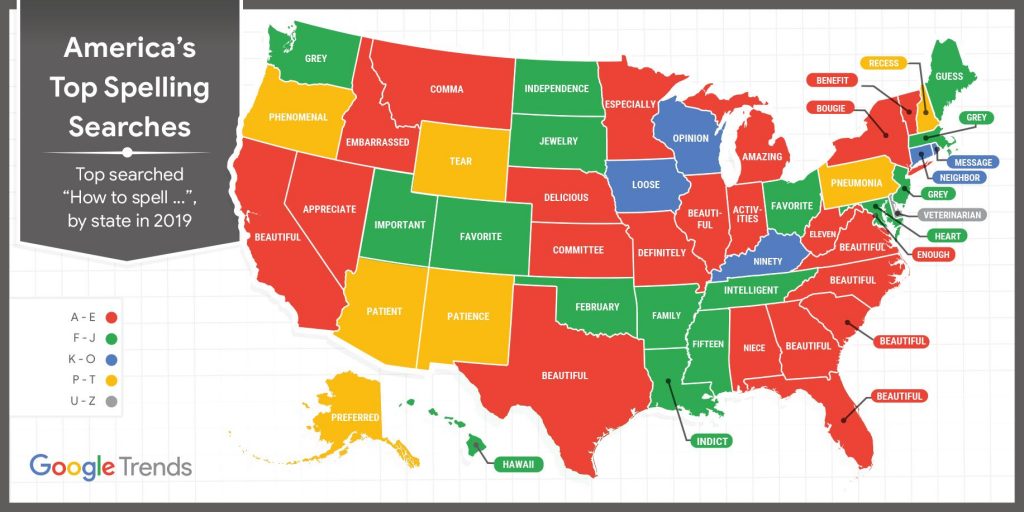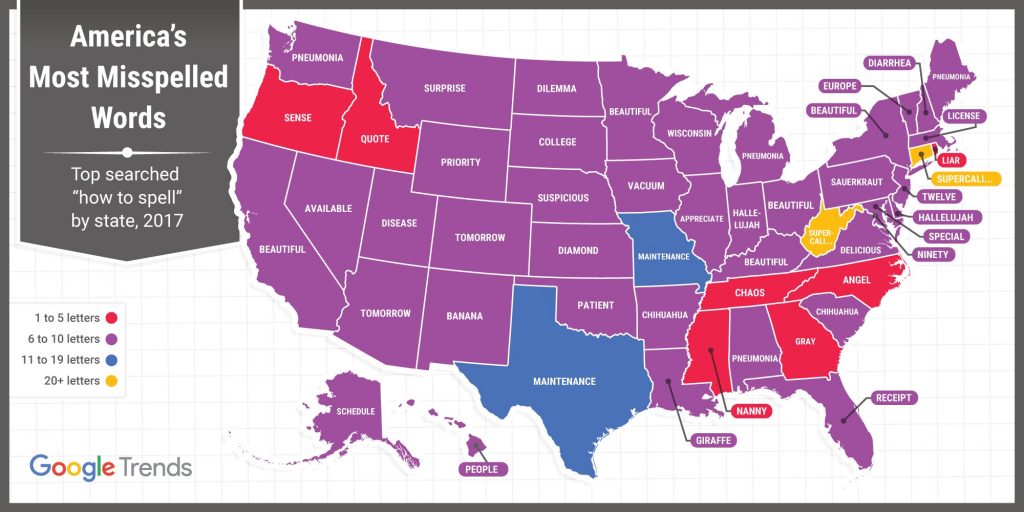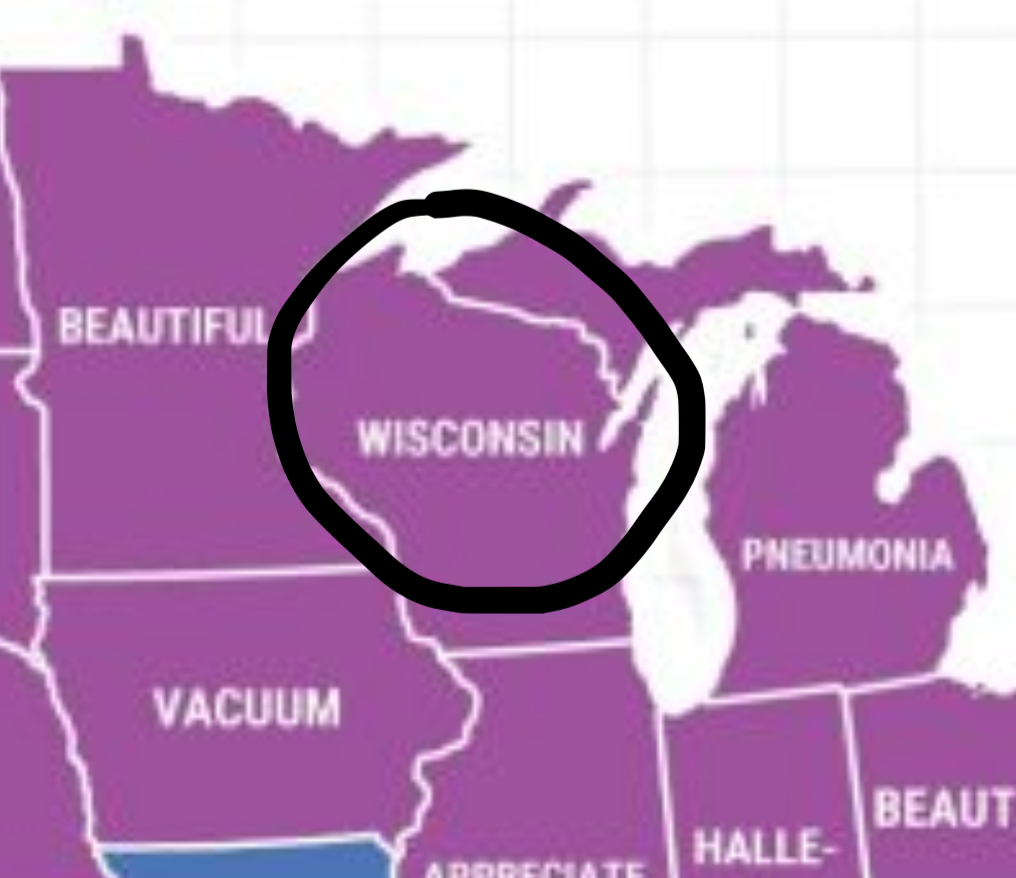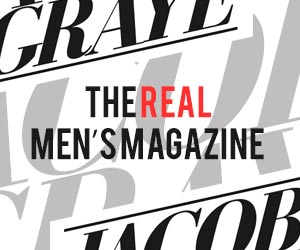Let me start off by saying that women really appreciate a man who knows how to spell. I once seriously dated a man who spelled “masturbate” as “master bate” (he wasn’t joking) and would text me “What are you up too?” every day, so trust me when I say that my opinions on grammar as it relates to attraction come from firsthand experiences.
Before you go on calling me shallow, just know that I don’t care. But moreover, the truth of the reality is that unless you have a legitimate learning disability, being a grown-ass man who can’t even spell at a fifth grade level isn’t exactly an attractive quality. There’s no excuse for not knowing the difference between your/you’re, their/there/they’re, to/two/too, then/than and other basic words if your IQ is over 70.
SO. Before we get into it, let’s look at this embarrassing map from Google Trends showing the top searched “How to spell…” in each state in 2019.

From this map, we’re able to see that Americans do not know how to spell very well. The 2017 map is somehow worse:

In case you missed it, Wisconsinites had trouble spelling the name of their own state.

YIKES.
Moving on, let’s hop right into some of the most commonly misspelled and mixed up words in the English language. Incorrectly using any of these will make you look like a hot mess who needs to go back to school.
Commonly confused homophones:
| You’re | Contraction of the phrase you are. Ex: “You’re a great speller!” |
| Your | A possessive adjective used to show ownership. Ex: “Your spelling is terrific!” |
| To | A preposition or part of a verb infinitive. Ex: “I want to learn how to spell basic words.” |
| Too | “Too” means also or in addition. Ex: “Do you want to learn how to spell, too?” |
| Two | The number two. Ex: “I have two spelling bee awards.” |
| Then | Used as either an adverb or an adjective. Ex: “I was bad at spelling, but then I got better.” |
| Than | A conjunction used for making comparisons. Ex: “I’m better at spelling than my friends are.” |
| There | An adverb that means in or at that place. Ex: “There are so many words in the alphabet.” |
| They’re | A contraction of they and are. Ex: “They’re finally learning to differentiate homophones.” |
| Their | The possessive case of they, meaning belonging to them. Ex: “It’s their responsibility to learn how to spell.” |
And now some commonly misspelled words:
| WRONG | RIGHT |
| Accomodation | Accommodation |
| Adress | Address |
| Wether | Whether /Weather |
| Rehersal | Rehearsal |
| Commited | Committed |
| Persue | Pursue |
| Occurence | Occurrence |
| Alot | A lot |
| Seperate | Separate |
| Wierd | Weird |
| Supress | Suppress |
| Greatful | Grateful |
| Bizzare | Bizarre |
| Dilicious | Delicious |
| Collegue | Colleague |
| Should of | Should have |
| Maintanence | Maintenance |
| Embarrased | Embarrassed |
| Definately | Definitely |
| Tonge | Tongue |
| Belive | Believe |
| Could of | Could have |
| Untill | Until |
| Supposably | Supposedly |
| Nessecary | Necessary |
| Tommorow | Tomorrow |
| Beggining | Beginning |
| Calender | Calendar |
| Dissapoint | Disappoint |
Lastly, before we part, I’d like to leave you with this list of the 10 most commonly misspelled words on resumes according to Netherlands-based firm Resume.io, so you can avoid that as well.
1. Initiative
2. Detail-orientated
3. Perfectionist
4. Management
5. Professional
6. Implemented
7. Corresponding
8. Achieved
9. Accurate
10. Succeeded










